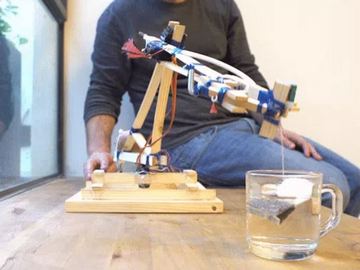Hiring engineers is a lot easier if you first build a culture that engineers will embrace. Of course, if you don’t have that culture but you still need to hire engineers, there’s no time like the present to build a culture that your engineers will love and you can have your new hires help you develop it.
Now, I know what you’re thinking. The culture that engineers want includes free sodas, ping pong tables, and relaxed hours on Friday so they can leave early to catch a concert or just mow the lawn. And those things are nice. But that’s not culture.
Culture — especially a culture that engineers will like — starts with your values. No, I don’t mean that poster you have hanging on the wall in the breakroom. Engineers will embrace real values that your team lives and breathes every day. They might include those core values, but they go beyond them.
So, with a nod to Jon Acuff for the name of this article, let’s look at stuff engineers like:
Hire Smart People
Duh. They’re engineers. Of course they’re smart. In this case, though, I mean hire people who are people smart (read a little more in our Hiring Team Players article.)
You need people who know how to read people and get along with them. Before they speak, people smart people will observe the room and apply a little analytical thinking. They’ll nod their understanding even if they disagree rather than shaking their head in a vehement “no.” They will demonstrate empathy when working with others and show concern for their feelings.
Being friendly is an aspect of this, but it goes beyond simply being friendly. People with people smarts make others feel good and that builds a positive work environment.
The Right to Question

“You will respect my authoritah!”
Eric Cartman from South Park
Have you ever worked with the super genius who was quick to squash anyone who questioned their authority? Or perhaps it was a leader in your organization? Or maybe it was just a bully. Regardless, someone exercised some level of authority and used it to keep others in their place and keep them from asking questions.
Your team members need to feel free to question ideas. Not just free, comfortable. When they know they can question ideas, even if they might have a “dumb” question, they will be more apt to bring up weaknesses in ideas as well as point out strengths. They will have open debates where they can harden and strengthen plans before the group takes action.
Smart people, like engineers, want to make their voices heard and an open forum allows that.
Time Keeps on Slippin’
“Time keeps on slippin’, slippin’, slippin’, into the future” ~ The Steve Miller Band from Fly Like an Eagle
Time grinds even mountains into dust. And abuse of time will wear on your engineers like few other social infractions. These tips will show you respect them and their time:
- Start Meetings on Time – If a team member or two aren’t there, start without them. If the boss isn’t there, start without them. If only one person showed up on time, start without everyone else. Just start on time. Eventually, your team will get used to it and they’ll show up.
- End Meetings on Time – Few things are as painful as that final conversation/argument between two people while the rest of the group sits around thinking, “I wish I hadn’t had that last cup of coffee.” If the topic is that important, schedule a follow-up.
- Limit Overtime – If you have to use overtime to finish an emergency project, that’s understandable. Just make sure every project isn’t an emergency project. When your firm first started, sure, everyone worked seven days a week. But you can’t sustain that model without wearing people out.
- Make them Go Home – When there’s not an emergency project, kick your engineers out of the building. At the end of the day, walk around and ask why they’re still there. If their project can possibly be done tomorrow, send them home. Walk around an hour before and kick them out early. They might even argue with you. If that’s the case, call their moms. I did … ask Joseph.
Innovation

Arduino-based robotic arm dunking a tea bag. (Project plan)
Engineers became engineers because they like to solve problems in new ways. Give them the latitude to explore, create, and most importantly, fail.
Not every experiment ends in success. But every experiment results in the growth of knowledge and sharpened skills. Sure, the time to innovate might not be during the delivery of a critical, multimillion-dollar project. But find opportunities for innovative solutions frequently. Small projects, in-house solutions, FedEx Days, or put some Arduinos and Legos in the break room and see what happens.
Your engineers are innovating. It might be at home or in their side hustle. Harness that brain power and feed it at the office.
The Final Takeaway
The facets of a great culture are many and varied, but these four are foundational. Hire people smart people builds a congenial environment. Opening the doors for debate – friendly debate – gives everyone a voice. Respecting time respects the individual. And freedom to innovate, to flex their creative minds, gives engineers the satisfaction that they were looking for when they entered the field.

